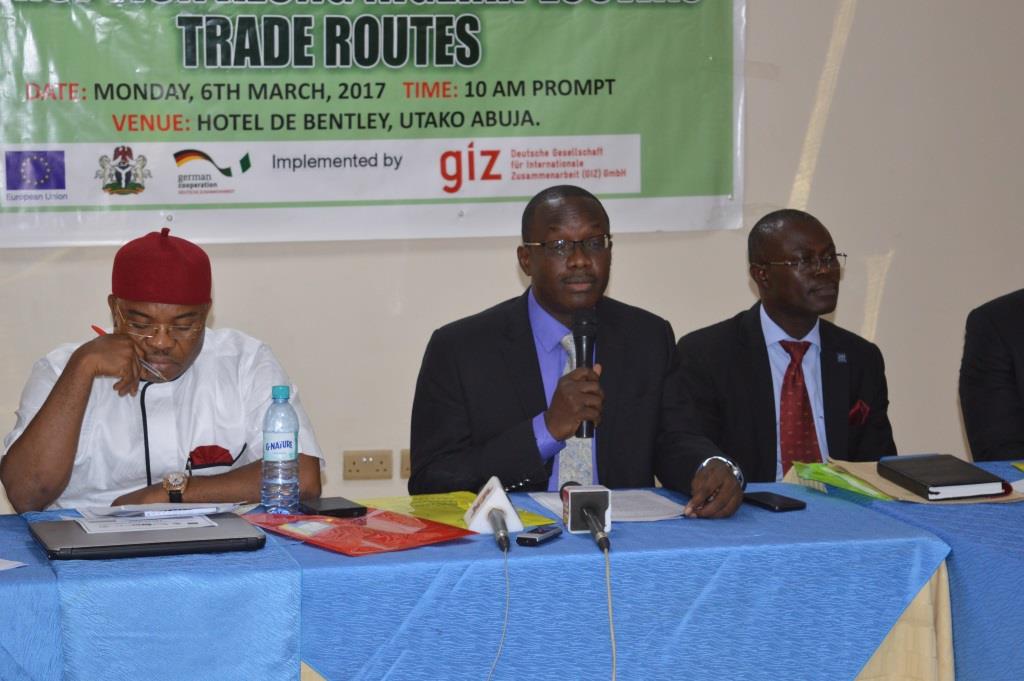The Chairman of the Independent Corrupt Practices and Other Related Offences Commission (ICPC) Ekpo Nta, has expressed the willingness of the Commission to collaborate with the National Association of Nigerian Traders (NANTS) to strengthen the integrity of border controls and customs administration.
The ICPC chairman, who was represented by the Director, Corruption Monitoring and Evaluation Department (CMED), Mr. Akeem Lawal, made this declaration recently in Abuja at an event tagged: Policy Dialogue with Stakeholders on Combating Corruption along ECOWAS Border Routes.
The Chairman’s declaration was in response to a call made by the President of NANTS, Mr. Ken Ukoha, to ICPC and other anti-corruption and security agencies to help ensure security of lives, property and free movement of goods along the Nigeria-ECOWAS trade routes.
The ICPC chairman remarked that the Nigerian Government and relevant agencies were aware of the importance of ensuring smooth trade facilitation which would contribute to job creation and economic growth.
He added that it was on account of this that ICPC had conducted Corruption Risk Assessment in Nigeria Seaports of Apapa, Tincan, Warri, Onne and Calabar as well as the international airports at Lagos and Abuja, with the objective of identifying corruption-prone processes as well as loopholes and providing workable solutions to them.
He explained that the exercise entailed strategic engagement and partnership with key ports stakeholders that included the Nigerian Shippers Council, Nigeria Customs Service, Nigerian Ports Authority, and Ministry of transport etc. to create a Ports Service Support Portal (PSSP) and to develop a Standard Operating Procedures (SOPs) document in order to minimize or eliminate corrupt practices at the ports.
Earlier in his address, the President of the NANTS, had stated that as part of the nation’s strategy for economic transformation and development, Nigeria had adopted the Regional Trade Agreements (RTAs) and the Common External Tariff (CET) at the West African regional level to promote intra-regional trade, free movement of goods, services and capital for the overall benefit of her citizens.
According to him, presently the ultimate benefits and opportunities of free trade have been dwindling and are completely eluding the country in a gradual manner as they are not being maximized due to challenges and risks along border routes.
The challenges, Mr. Ukoha says, are cases of corruption involving various law enforcement agents and border officials on the one hand, and traders, transporters and clearing agents etc. on the other hand who constantly distort trade flows thereby inhibiting the attainment of the overall benefits of free trade to Nigeria.


